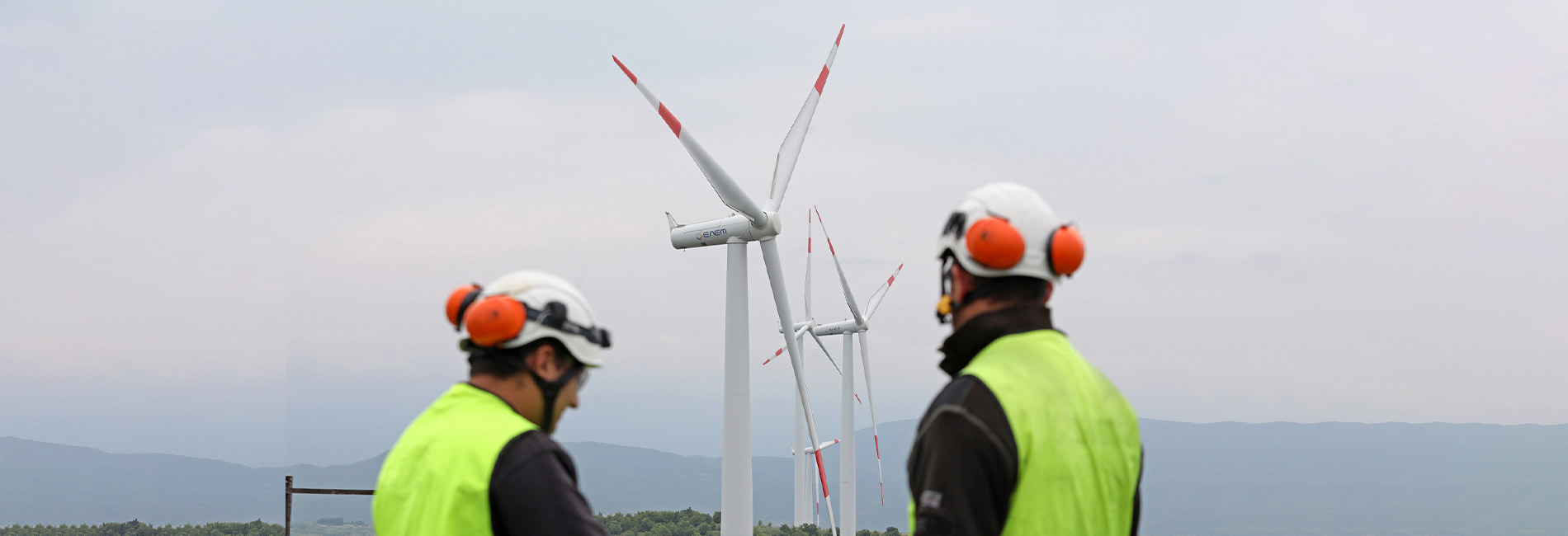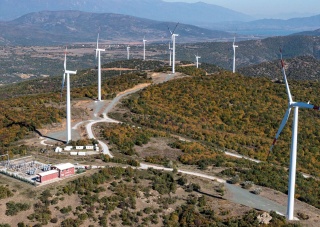

12-02-2024
Better living conditions for students in North Macedonia as renovation programme begins
Works start on two dormitories in Skopje as part of the Regional Energy Efficiency Programme that also improve...

The energy sector in the Western Balkans is characterised by insufficient and ageing infrastructure, relatively high reliance on fossil fuels, late adoption of renewables beyond hydropower and residential biomass, limited energy efficiency and energy productivity, high rates of energy poverty despite usually high levels of direct and hidden energy subsidies (mostly targeted towards fossil fuels), limited market mechanisms and private sector participation. Thus, it faces a unique dual transition: from centralised state-controlled systems to open and competitive markets, and towards decarbonisation.
12-02-2024
Works start on two dormitories in Skopje as part of the Regional Energy Efficiency Programme that also improve...
16-01-2023
With EU support, North Macedonia is confidently increasing its green energy generation capacity.
14-12-2022
On 6 December 2022, the European Commission President Ursula von der Leyen presented the Energy Support Packag...
Through the Economic and Investment Plan, the support in the field of energy will be reinforced. Strong emphasis will be put on energy market integration, decarbonisation and clean energy, just transition, increased digitalisation of the system and smart grids, energy efficiency, including modernisation of district heating, and energy security. These are the key pillars of the Economic and Investment Plan for the Western Balkans in line with the aims of the Green Agenda. Participation in the Energy Community Treaty provides a clear policy framework and bears the potential for regional growth through multi-country projects, and by tapping into the region’s large renewable energy and energy efficiency potential. WBIF support is oriented to the Plan’s priorities: Flagship 4 - Renewable energy, Flagship 5 - Transition from coal, Flagship 6 - Renovation wave.
Read MoreTransition from coal to sustainable and clean energy in line with the aims of the European Green Deal.
Extension of the Energy Union to the Western Balkans for a successful clean energy transition in the region.
Environmentally sound investments in hydro, solar, wind and geothermal sources.
The “Coal regions in transition platform" to support inclusive transition strategies.
Widely available, secure and affordable source of energy that will keep the region competitive.
A refurbished building stock will help pave the way for a decarbonised and clean energy system.
Acceleration of the integration of Central and South Eastern European gas and electricity markets.
Further boost to technology transfer, and access to world-class research infrastructure.
2009 - 2022
2023 - 2031
The Energy Community is an international organisation which brings together the European Union and its neighbours to create an integrated pan-European energy market. The organisation was founded by the Treaty establishing the Energy Community signed in October 2005 in Athens, Greece, in force since July 2006. The key objective of the Energy Community is to extend the EU internal energy market rules and principles to countries in South East Europe, the Black Sea region and beyond on the basis of a legally binding framework.
Read More Connectivity Agenda
Connectivity Agenda(2015-2020)
In 2015, the European Commission set aside up to €1 billion in grants until 2020, from the EU Pre-Accession Instrument, to support the connectivity agenda. In November 2020 at the summit in Sofia, the Western Balkan leaders welcomed the 2020 connectivity package with six projects in the areas of sustainable transport and clean energy. This package completes the delivery of the EU’s 2015 pledge, while at the same time constitutes the first step towards the implementation of the flagship projects of the Economic and Investment Plan.
Read More15-04-2024
WBIF Bilateral Donors factsheet (last updated in April 2024).



